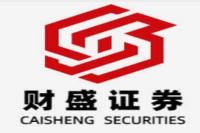South Korea's Presidential Investigation: A Deep Dive into the Unprecedented Standoff
Meta Description: Delve into the unprecedented legal drama unfolding in South Korea, exploring the intricacies of the investigation into President Yoon Suk-yeol, the challenges faced by the Supreme Prosecutors' Office (SPO), and the implications for Korean democracy. Keywords: Yoon Suk-yeol, South Korea, Presidential Investigation, Supreme Prosecutors' Office, SPO, Legal Standoff, Constitutional Crisis, Political Impasse.
Imagine this: the President of a nation, shielded by layers of protocol and power, suddenly finds himself on the receiving end of a summons. Not just any summons, mind you, but one demanding his presence before investigators probing potentially serious wrongdoing. This isn't some far-fetched Hollywood plot; it's the gripping reality unfolding in South Korea, a nation known for its robust legal system and vibrant democracy. The refusal of the Supreme Prosecutors' Office (SPO) to simply hand over a summons to the President’s office, instead opting for a direct delivery to the presidential residence, speaks volumes about the gravity of the situation and the unprecedented nature of this political and legal showdown. This isn't just a clash between branches of government; it's a test of the very foundations of South Korean law and the principle of accountability, even at the highest echelons of power. The implications reach far beyond South Korea's borders, serving as a potent case study in presidential immunity, the delicate balance between executive authority and judicial oversight, and the potential for constitutional crises in democratic systems. We’ll dissect the unfolding drama, analyzing the legal arguments, the political maneuvering, and the potential consequences for South Korea’s future, offering insights gleaned from years of following Korean politics and legal developments. Get ready for a rollercoaster ride through the heart of a high-stakes legal battle that’s captivating the world’s attention – and possibly shaking the foundations of South Korean democracy. Prepare to unravel the complexities, the ambiguities, and the sheer drama of this extraordinary situation, and let's explore how this unprecedented move could redefine the relationship between the executive and judicial branches of the Korean government for years to come.
Yoon Suk-yeol and the Supreme Prosecutors' Office: A Head-on Collision
The recent attempt by the Supreme Prosecutors' Office (SPO) to directly deliver a summons to President Yoon Suk-yeol at his official residence marks a dramatic escalation in an already tense situation. This unprecedented move is not simply a procedural misstep; it’s a powerful statement reflecting the SPO’s determination to uphold the rule of law, even against the nation's most powerful figure. This bold action raises serious questions about the balance of power in South Korea and the limits of presidential immunity.
The SPO’s decision to bypass traditional channels and deliver the summons directly to the President’s residence suggests a significant level of frustration with the perceived obstruction from the Presidential Office. This bypass signals a belief that established protocols are being used to hinder the investigation, potentially indicating a deliberate attempt to obstruct justice. The move also highlights the SPO’s commitment to pursuing the investigation vigorously, irrespective of the political implications.
The implications are far-reaching. It sets a potentially dangerous precedent, blurring the lines between executive and judicial authority. It’s a high-stakes game of political chess, with the potential consequences rippling through Korean society and beyond. This isn't merely a legal battle; it's a clash of ideologies, a fight for the soul of Korean democracy.
Navigating the Legal Labyrinth: Presidential Immunity and Investigative Powers
The core of this conflict lies in the complex interplay between presidential immunity and the SPO’s investigative powers. While South Korean law affords the President certain protections, these are not absolute. The question of what constitutes legitimate grounds for investigation, and what level of cooperation the President is constitutionally obligated to provide, are at the heart of this dispute.
The SPO's argument likely centers on the need to ensure accountability, even for the President. They are tasked with upholding the law, and their actions suggest a belief that the President's cooperation is essential for a fair and thorough investigation. This highlights a crucial tension inherent in democratic systems: balancing the power of the executive with the need for checks and balances. The situation presents a constitutional challenge, forcing a critical examination of the existing legal framework and the potential need for reform.
It's crucial to understand the nuances of South Korean law, which differs significantly from systems in other countries. International legal precedents offer some guidance but cannot fully resolve the unique constitutional issues at play here. This is uncharted territory, making the situation even more compelling and potentially volatile.
The Political Fallout: A Nation on Edge
The political ramifications of this standoff are immense. The opposition parties are likely to seize on this opportunity to criticize the President, painting him as someone who is above the law. Conversely, the ruling party will likely defend the President’s actions, framing the investigation as politically motivated.
Public opinion is deeply divided. Some support the SPO’s efforts to ensure accountability, while others believe the investigation is an attempt to undermine the President's authority. This division reflects the broader political polarization currently gripping South Korea. The situation could further exacerbate existing tensions, leading to increased social unrest and political instability. The potential for street protests and other forms of civil disobedience is very real.
The International Perspective: A Global Watch
This legal drama is not isolated to South Korea. International observers are closely monitoring the situation, analyzing its implications for democratic governance worldwide. The outcome will have a significant impact on how other countries view South Korea's commitment to the rule of law and its democratic institutions. The case sets a precedent, which other nations will study carefully, creating a ripple effect across the international political landscape.
Understanding the Key Players: A Closer Look
The key players in this unfolding drama are not just individuals, but powerful institutions. Understanding their roles and motivations is crucial to appreciating the complexities of the situation.
-
President Yoon Suk-yeol: His actions and responses are central to the unfolding events. His stance on the investigation and his willingness (or unwillingness) to cooperate will shape the outcome.
-
The Supreme Prosecutors' Office (SPO): This independent body is tasked with investigating high-profile crimes, including those involving senior government officials. Their actions reflect their commitment to upholding the rule of law, regardless of political pressure.
-
The Presidential Office (Cheong Wa Dae): The office plays a vital role in managing the President's affairs and communication with other government bodies. Their actions in this situation are key to understanding the strategy of the President's response to the investigation.
-
The National Assembly: The legislative branch has a critical role to play in overseeing the executive branch and ensuring accountability. Their response to the events will be crucial to resolving the conflict.
Frequently Asked Questions (FAQs)
-
What is the nature of the investigation against President Yoon Suk-yeol? The specific details of the investigation remain somewhat opaque, pending further disclosures. However, the focus appears to be on potential ethical breaches and possible abuse of power.
-
What are the potential consequences for President Yoon Suk-yeol? Depending on the outcome of the investigation, he could face a range of consequences, from mild reprimands to impeachment proceedings.
-
How does this situation impact South Korea's international standing? The situation is being closely watched internationally, with many questioning whether South Korea’s legal system can effectively hold its highest officials accountable.
-
What are the prospects for a peaceful resolution to this crisis? A peaceful resolution hinges on the willingness of all parties to engage in constructive dialogue and compromise. The political climate, however, suggests this is a challenging path.
-
Could this lead to a constitutional crisis? The potential for a constitutional crisis is real, particularly if the standoff escalates and leads to a breakdown in the functioning of government.
-
What reforms might emerge from this crisis? The crisis could lead to reforms aimed at clarifying the limits of presidential immunity and strengthening mechanisms for ensuring accountability of high-ranking officials.
Conclusion: A Pivotal Moment for South Korean Democracy
The standoff between President Yoon Suk-yeol and the SPO represents a pivotal moment for South Korean democracy. It forces a critical examination of the balance of power within the government and highlights the ongoing tension between executive authority and judicial oversight. The outcome of this legal drama will have significant implications for South Korea’s political landscape and its future. The world watches with bated breath, hoping this unprecedented event will ultimately strengthen, not weaken, the foundations of Korean democracy. The events unfolding highlight the importance of transparent and accountable governance, even at the highest levels. Let's hope the ongoing legal battle serves as a catalyst for positive change, leading to a more robust and resilient democratic system for South Korea.



